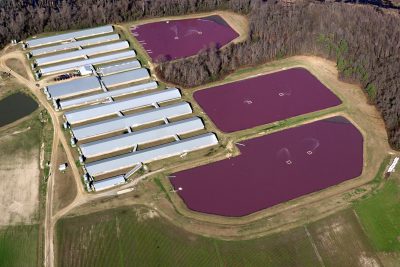Why are the world’s most prominent physicians and pioneers of nutritional science urging us to adopt a vegan plant-based diet, and why is it so important for America, in particular, to address its eating habits?
The answer is in the numbers.
Americans consume nearly 4,000 calories a day on average—which is more than anyone else in the world—and that’s easily done when the standard American diet (SAD) is characterized by a high intake of meat, processed and pre-packaged foods, butter, dairy products, eggs, fried foods, refined grains, and added sugar. Over the past 20 years, the consumption of junk food, meat and dairy has increased dramatically in the U.S.
How many of these diseases are linked to the American diet?
Of the 10 leading killer diseases in the United States, at least six are connected in some way to what we choose to eat. Combined, these six diseases—heart disease, cancer, stroke, diabetes, liver disease, and atherosclerosis—account for around 63 percent of all U.S. deaths annually.
Recent studies have also shown that poor diets are now responsible for more deaths around the world than any other risk factors, including cigarette smoking, which was previously known to be one of the greatest threats to public health.
Today, nearly half (133 million) of all Americans suffer from at least one chronic disease and that number is growing. Healthcare spending has reached a total of $3.3 trillion a year, and chronic diseases account for nearly 75 percent of that spending.
America cannot continue in this way.
Food choices and health outcomes
Doctors agree that the overconsumption of animal products and processed foods in American and Western diets is a significant contributor to poor health, and increases a person’s risk of becoming sick. Projections from the Eat-Lancet Commission of scientists also show that continuing to eat a standard American diet coupled with the rapid global population and economic growth we are currently seeing, will drive significant health burdens and push food systems well beyond environmental limits.
Put more simply: America cannot sustain its growing population on its current diet, and through an animal-based food system that poisons U.S. rivers, pollutes the air, destroys native wildlife, and uses up land that could instead be repurposed to produce up to 20 times more food.
That’s right! According to a recent study in the Proceedings of the National Academy of Sciences, if America went vegan then we’d free up enough extra farmland to feed 350 million more people. This is because animal farming is far more land and resource-intensive than crop farming. As an example of just how resource-intensive producing meat actually is, the Beyond Burger—a popular plant-based burger patty that closely resembles beef—takes 93% less land, 99% less water, 90% less C02 and 46% less energy to produce than an actual beef burger. It tastes amazing too!

Adopting a plant-based vegan diet would save land and lives by benefiting both our health and our environment.
Plant-Based Prevents Deaths
The EAT–Lancet Commission on healthy diets found that widespread adoption of a plant-based diet could also prevent roughly 11 million deaths each year by providing major health benefits.
To understand why changing what we eat could have such a profound impact on rates of chronic disease and disease-related mortalities in America specifically, we should look at some of the nation’s biggest killers and how those diseases are influenced by food.
Chronic Disease in America in Numbers
Heart Disease and Stroke
Nothing kills more Americans than heart disease and stroke. More than 859,000 Americans die of heart disease or stroke every year, which equates to one-third of all deaths. These diseases take an economic toll, as well, costing the U.S. healthcare system $199 billion per year and causing $131 billion in lost productivity on the job.
In the case of stroke, coronary and vascular heart disease and peripheral arterial disease (PAD), there is strong human evidence that a plant-based diet rich in fruits, vegetables, legumes and wholegrains can be very beneficial in managing, halting and even reversing these life-threatening diseases. Meanwhile, the role of dairy, oils and fats is controversial, and the role of meat, poultry, eggs, processed and refined foods appear to be detrimental.
While a rapidly growing number of medical professionals and healthcare systems now recognize the effectiveness of a whole food plant-based diet in treating heart disease, Million Dollar Vegan supporters Dean Ornish, M.D. and Caldwell Esselstyn, M.D. were the first medical professionals to research and demonstrate how comprehensive lifestyle changes may begin to reverse even the most severe coronary heart disease without the aid of drugs or surgery.
To this very day, doctors Ornish and Esselstyn are showing people around the world how to use food to manage, reverse and reduce their risk of this killer disease, as well as asking President Trump to lead by example by going vegan this January.
Cancer
Each year in the United States, more than 1.6 million people are diagnosed with cancer, and almost 600,000 die from it, making it the second leading cause of death. The cost of cancer care continues to rise and is expected to reach almost $174 billion by 2020.
In 2008, Million Dollar Vegan supporter Dr. Dean Ornish published landmark research showing that comprehensive diet and lifestyle changes could slow, stop or reverse the progression of early-stage prostate cancer. This was tied to the fact that our diet and lifestyle can affect gene expression, “turning off” genes that promote cancer and heart disease.
In his seminal work, The China Study, biochemist T. Colin Campbell showed that cancer development is primarily a nutrition-responsive disease rather than a genetic one, and that high-antioxidant whole food plant-based nutrition has a positive biological effect on our body’s defense systems, enabling them to control and, on occasion, even reverses cancer development.
Controlled studies also showed that animal-based protein and dietary fat consumption has the opposite effect on cancer, by turning tumor development “on”. The World Health Organization (WHO) has responded to this evidence by classing processed meats (deli-meats, ham, chorizo, pepperoni, bacon, sausage, etc) as a Group 1 carcinogen, putting it in the same cancer-causing category as smoking. Non-processed meats, such as beef, lamb and pork, have also been classified as carcinogenic and a probable cause of cancer.
Furthermore, dairy products (milk, yogurt, cheese) are linked to prostate cancer and also associated with an increased risk of lung cancer, breast cancer, and ovarian cancer in people with lactose intolerance. The Life After Cancer Epidemiology study found that, among women previously diagnosed with breast cancer, those consuming one or more servings of cheese, ice cream, or whole milk daily had a 49 percent higher breast cancer mortality, compared with those consuming none.
It therefore makes sense that both Dr. Campbell and Dr. Ornish are encouraging the President to eliminate animal products from his diet.
Diabetes
More than 30 million Americans have diabetes, and another 84 million adults in the United States have a condition called prediabetes, which puts them at risk for type 2 diabetes. Diabetes can cause heart disease, kidney failure, and blindness, and costs the U.S. healthcare system and employers $237 billion every year.
Studies show that eating a high-fat, standard American diet can cause fat particles to build up inside our cells. These fat particles interfere with insulin’s ability to move sugar out from our bloodstream and into our cells, so instead of powering our cells, the glucose remains in our bloodstream, eventually leading to diabetes.
A whole food plant-based diet, which is naturally low in fat, is a powerful tool for preventing, managing, and even reversing type 2 diabetes because it allows insulin to function properly. It has been shown to be effective at reducing and managing symptoms of type 1 diabetes as well.
In a 2003 study funded by the NIH, The Physicians Committee for Responsible Medicine (PCRM) tested thousands of patients with type 2 diabetes and determined that a plant-based diet controlled blood sugar three times more effectively than a traditional diabetes diet that limited calories and carbohydrates. Within weeks on a plant-based diet, participants saw dramatic health improvements: their insulin sensitivity improved, and HbA1c levels dropped. In some cases, you wouldn’t even have known they’d had the disease at all.
Nutritional Biochemist, Dr. Cyrus Khambatta, was diagnosed with type 1 diabetes in 2002, and has, for the past decade, been educating people with type 1 diabetes, type 1.5 diabetes, prediabetes and type 2 diabetes how to reduce and reverse insulin resistance through a WFPB diet and exercise with outstanding patient results.
Both Dr. Khambatta and Dr. Barnard—founder of PCRM—are asking President Trump to set an example and go vegan for January.
The Doctors’ Prescription: Go Vegan!
In view of all this, it’s little wonder that some of the biggest names in medicine and nutritional science are asking America’s President to lead by example by going vegan for January.
Changing what we eat to counter the chronic disease epidemic sweeping America is vitally important if we wish to gain access to a better quality of healthcare and an improved quality of life. At the same time, understanding how eating a whole food, plant-based diet enables us to avoid, manage, and even reverse chronic illnesses is our key to Making America Healthy Again.
These world-class doctors and specialists in how to use food as medicine are standing-by to teach President Trump how plant-based eating can significantly benefit not only his health, but also the health of his great nation, in as little as just four weeks.
For the good of America, we hope that Mr. President accepts their invitation to go vegan for January.



